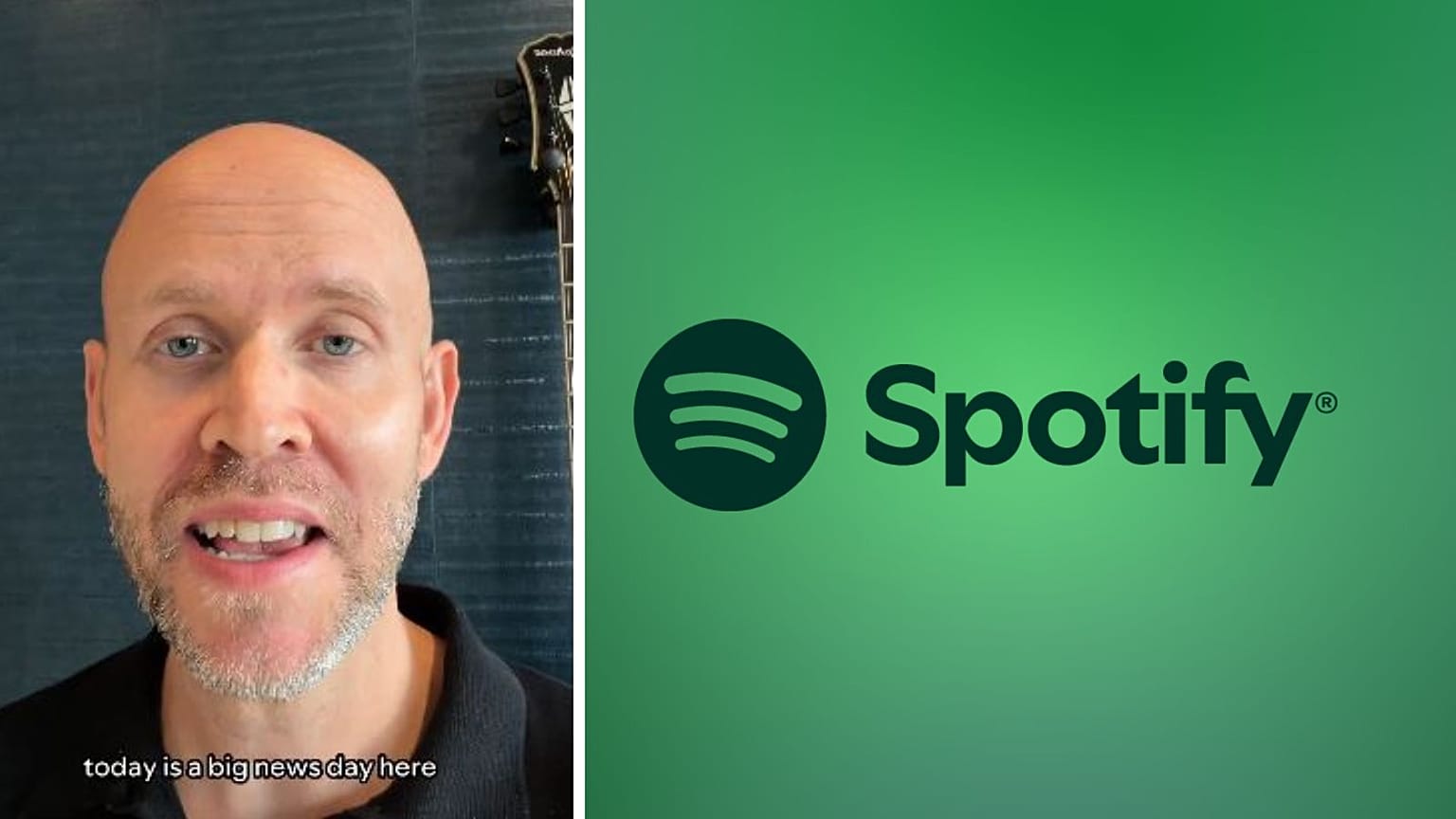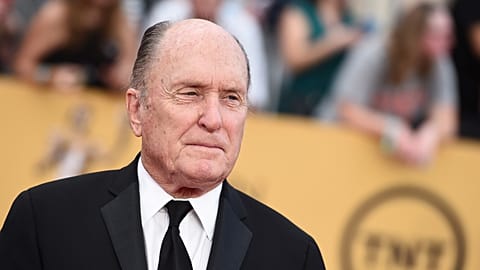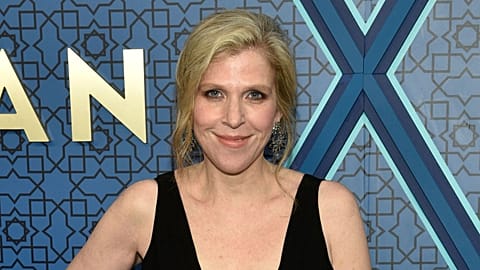Daniel Ek stepping down as CEO of the company he founded comes during much backlash aimed at Spotify, ranging from issues regarding artist payment and Ek’s investments in weapons.
Spotify founder Daniel Ek has formally ended his tenure as CEO of Spotify, the increasingly controversial streaming giant he founded two decades ago.
 ADVERTISEMENT
ADVERTISEMENT
 ADVERTISEMENT
ADVERTISEMENT
As of 1 January 2026, Ek will “transition” to the role of executive chairman of Spotify, according to the company. Gustav Söderström, currently co-president and chief product and technology officer, and Alex Norström, co-president and chief business officer, will become Spotify’s co-CEOs.
According to a company statement, the executive change “formalizes how Spotify has successfully operated since 2023 with the co-presidents largely leading strategic development and operational execution of Spotify.” As executive chairman, Ek’s role “will more closely reflect a European chairman setup,” where he will oversee capital allocation and scope out the long-term future and strategy for Spotify while continuing to provide support and guidance to its senior team.
Ek added that the move has been made to allow him to shift his focus towards other businesses.
“A personal note on what’s next for me. I am often asked, ‘How do we build more Spotifys out of Europe?’ That’s why several years ago, I announced my intention to help create more of these supercompanies - companies that are developing new technologies to tackle some of the biggest challenges of our time,” he added.
One of the businesses outside of Spotify that Ek is involved in is his investment company Prima Materia – one which has caused headache for Spotify.
Indeed, over the summer, the brand led a €600million investment into Helsing – a Munich-based company creating drones and artificial intelligence for military operations.
Ek's increasing ties with the arms industry have led a number of high-profile artists to pull their music from Spotify, including prolific Australian psych-rock group King Gizzard & the Lizard Wizard and American indie group Deerhoof, who said they don't want their "music killing people", describing Spotify as a “data-mining scam.”
Another high-profile name recently added itself to the boycott: celebrated British trip-hop collective Massive Attack.
In a statement on Instagram, the band wrote: “In light of the (reported) significant investments by [Spotify’s] CEO in a company producing military munition drones & Al technology integrated into fighter aircraft, Massive Attack have made a separate request to our label that our music be removed from the Spotify streaming service in all territories.”
This comes as Massive Attack and more than 400 artists – including Fontaines D.C., Kneecap, Primal Scream, Wednesday, Amyl & The Sniffers, MØ and Björk - joined the No Music For Genocide cultural boycott initiative, which encourages artists and rights-holders to pull their music from streaming platforms in Israel.
These protests add to a growing list of controversies and concerns surrounding the streaming platform.
In 2024, Ek’s comments relating to the cost of “creating content” sparked backlash from users and musicians.
Ek did release a statement saying that he didn’t mean to use the “reductive” label of “content”. Still, the Spotify platform has frequently given the impression of being dismissive of the struggles faced by artists. Worse, underpaying and exploiting the vast majority of musicians.
Unlike physical sales or downloads, which pay artists a fixed price per song or album sold, Spotify pays royalties based on the artist’s “market share”. The likes of Radiohead’s Thom Yorke and Taylor Swift have criticised this policy and have temporarily withdrawn their music from the service in the past.
The backlash was not helped by Spotify making record profits of more than €1billion last year, following staff being laid off (17% of its work force cut down) and subscription prices rising. And again, all at the expense of artists struggling to make any income from streaming – especially after 1 April 2024, when Spotify officially demonetised all songs on the platform with less than 1,000 streams.
At the time, Primal Scream bassist Simone Marie Butler said that Ek was “sitting on his yacht laughing at your Spotify top five while he cashes in on music he had nothing to do with, calls it ‘content’ and artists still get £0.04 per stream.”
While Spotify announced in its Loud & Clear 2024 report that it paid over $10 billion (€9.2 billion) to the music industry in 2024 alone, critics have argued that most of those payouts go to just a small percentage of top artists and labels, and that the platform still exploits the vast majority of musicians.
Artists like Björk, James Blake and Nine Inch Nails’ Trent Reznor have slammed the streaming platform. The Icelandic singer said that Spotify “is probably the worst thing that has happened to musicians,” Blake bemoaned how “the brainwashing worked and now people think music is free”, while Reznor shared how streaming has “mortally wounded” artists.
Spotify also recently came under fire after allowing an AI-generated band called Velvet Sundown, which has managed to rack up millions of streams, to appear on its platform with a “verified artist” badge.
We described Spotify’s role in allowing the AI band on the platform as "a prime example of autocratic tech bros seeking to reduce human creation to algorithms designed to eradicate art."
While these protests multiply, they may not be able to claim they forced the leadership shake-up - even if the timing could be read as fortuitous and a move to ease some pressure.
Spotify board director Woody Marshall claims that the recently announced leadership changes had been in motion for years.
Nevertheless, co-CEOs Gustav Söderström and Alex Norström will have to work double shifts to claw back some goodwill, which seems to be in short supply at the moment.
The two lieutenants have been with Spotify for more than 15 years and will report to Ek, so any hopes of major changes with regards to the treatment of artists and their “content” isn’t likely to change.
Morningstar analyst Matthew Dolgin wrote in a research note: “Leadership transition always brings risk, but succession is inevitable, and this one appears to be as orderly as possible.” That said, he added: “Naming co-CEOs and still having Ek overseeing long-term strategic direction can bring more risk than having a more singular authority.”
Spotify shares, which doubled in the past year, fell more than 3 per cent in early morning trading after Ek’s announcement. The platform still remains the clear market leader with nearly 700 million monthly users, far ahead of Apple Music's roughly 90 million subscribers.

















